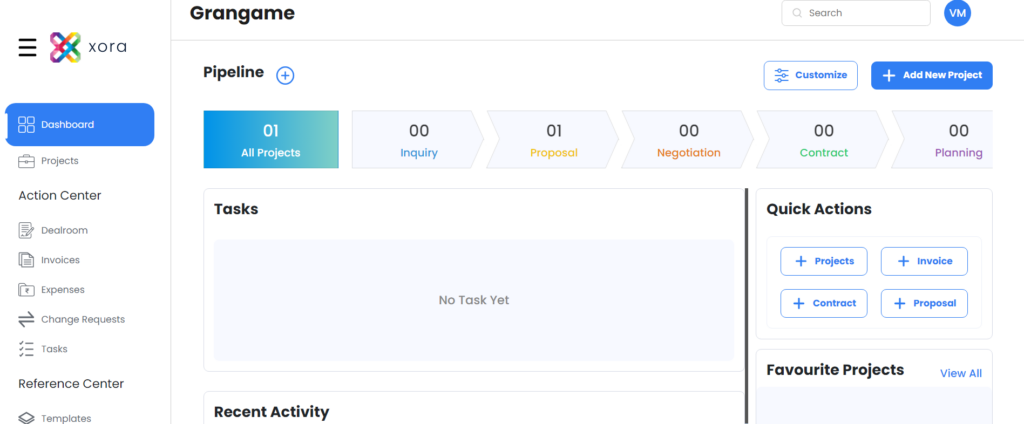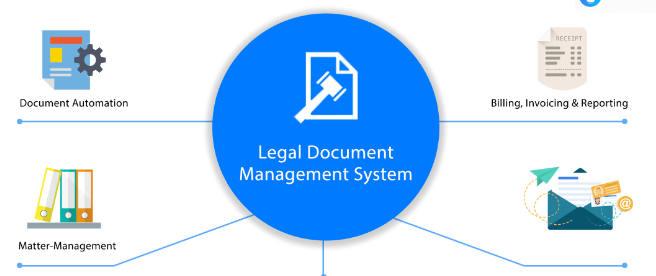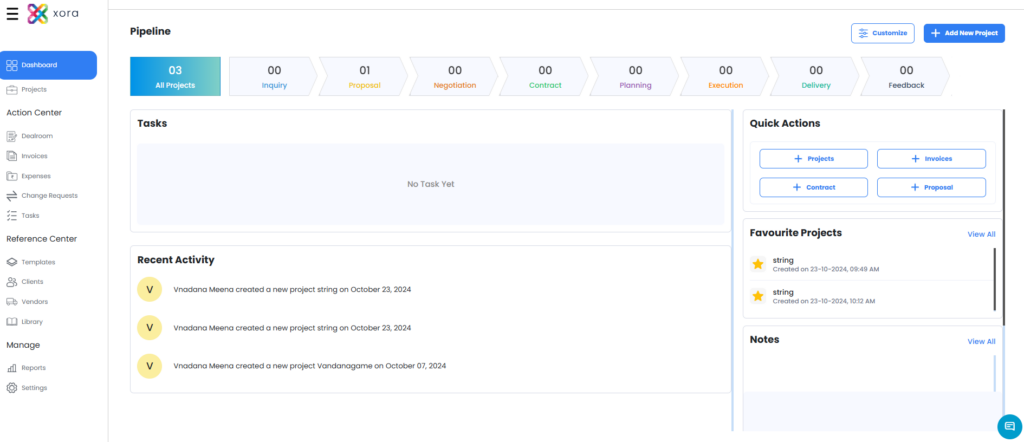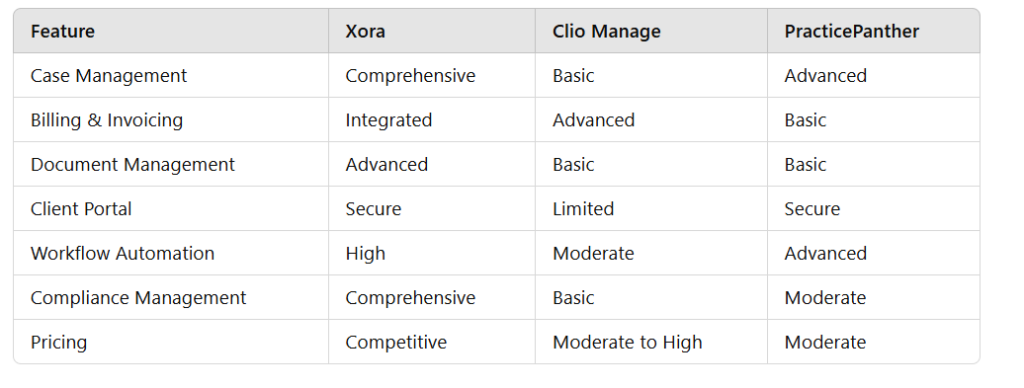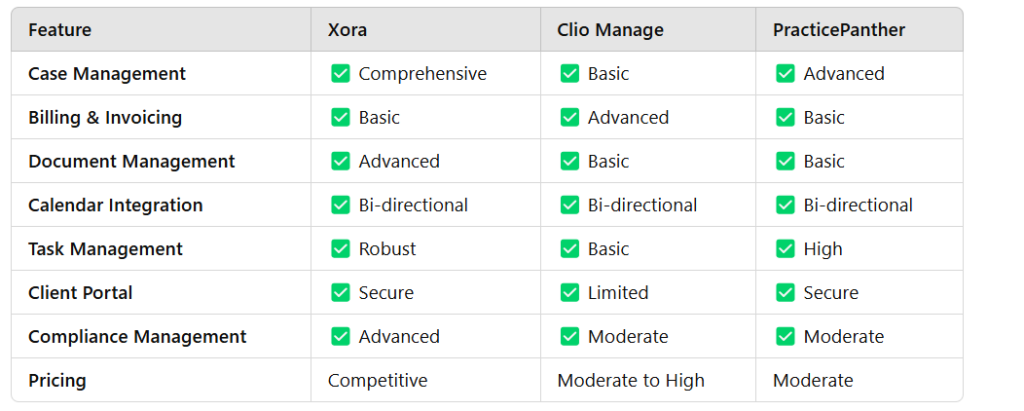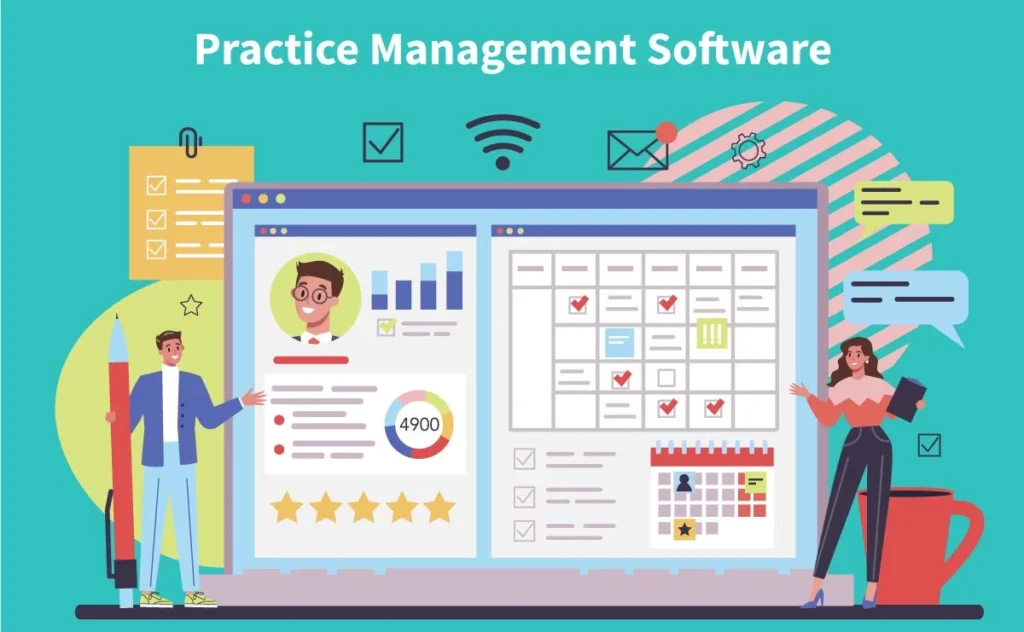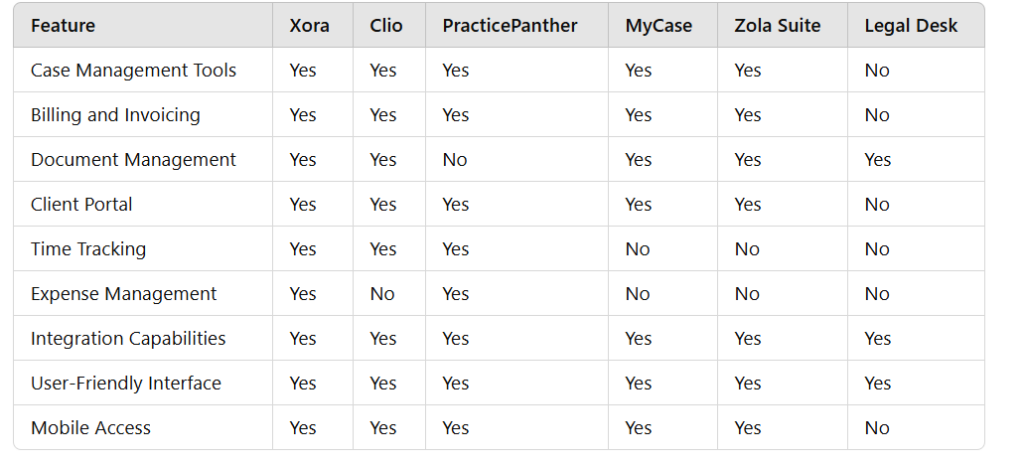Table of Contents

Introduction
In the legal industry, managing documents effectively is crucial. Law firms handle vast amounts of sensitive information, including contracts, case files, client data, and court filings, which must be organized, accessible, and secure. Document management software designed specifically for law firms is a valuable solution to these needs, providing robust tools for organizing, storing, and securing documents while simplifying collaboration and retrieval.
This blog explores the best law firm document management software options available in 2024, highlighting key features, security considerations, and the unique benefits of each platform. From secure storage to advanced search capabilities, we’ll examine how these software solutions can streamline document workflows, enhance security, and improve overall efficiency for law firms.
Why Law Firms Need Document Management Software
Legal documents, from court filings and discovery documents to contracts and client communications, are the backbone of any law firm. Manually managing these documents is not only time-consuming but also prone to errors, security risks, and compliance issues. Document management software designed for law firms offers a centralized solution, where all documents are stored securely, accessed easily, and organized systematically.
Here are some of the key reasons why law firms benefit from document management software:
- Improved Organization: With document management software, all documents are stored in a single, organized system, making it easy to locate and retrieve specific files.
- Enhanced Security: Law firms deal with sensitive client information, so secure storage and encryption are essential. Document management software includes security features like encryption, role-based access control, and audit trails.
- Efficient Collaboration: Document management software enables team members to collaborate on documents securely, even across different locations.
- Compliance and Auditability: Legal firms must comply with regulations for data privacy and document retention. Document management software tracks access and modifications, ensuring compliance and accountability.
- Scalability and Efficiency: As a firm grows, document management software can handle larger volumes of data without slowing down, allowing the firm to remain efficient and productive.
Key Features to Look for in Law Firm Document Management Software
When selecting document management software for a law firm, it’s essential to consider the features that best support legal workflows. Here are some key features to look for:
- Secure Document Storage: All documents should be stored securely in the cloud or on-premises, with encryption to protect sensitive data.
- Advanced Search Capabilities: The ability to search for documents using keywords, dates, and metadata is crucial for quickly finding case files and other documents.
- Access Control and Permissions: Role-based access control allows firms to restrict access to sensitive information based on user roles, enhancing security.
- Document Versioning: Version control keeps track of changes made to documents, ensuring that the latest version is always available and reducing the risk of errors.
- Integration with Other Software: Document management software should integrate with case management, billing, and email software to streamline workflows.
- Audit Trails and Compliance Tracking: Audit trails track all document access and modifications, supporting regulatory compliance and providing accountability.
Top Document Management Software Solutions for Law Firms
Here’s a look at some of the best document management software solutions tailored to meet the unique needs of law firms:
1. Xora Document Management
Xora is a leading document management solution for law firms, offering a comprehensive suite of tools designed to enhance document organization, security, and collaboration. Xora’s emphasis on compliance and ease of use makes it an ideal choice for law firms seeking a reliable and efficient document management platform.
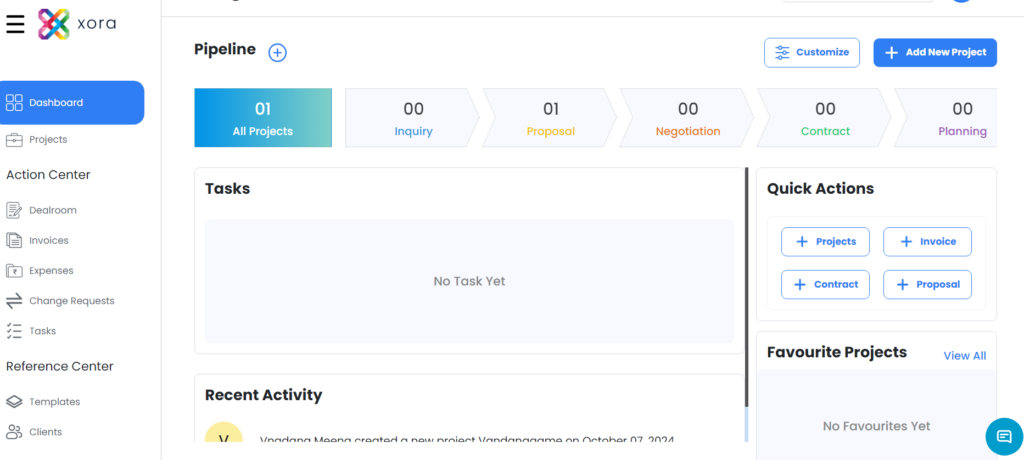
- Secure Document Storage: Xora stores all documents securely in the cloud with encryption and role-based access control, ensuring that sensitive client data remains protected.
- Advanced Search and Filtering: With powerful search capabilities, Xora allows users to locate documents quickly based on keywords, metadata, or file attributes.
- Document Versioning: Xora’s version control feature enables teams to track changes and access previous versions, reducing the risk of working with outdated information.
- Integrated Collaboration Tools: Xora includes collaboration tools that allow team members to comment, edit, and review documents in real-time, facilitating seamless teamwork across cases.
- Compliance and Auditability: Xora provides detailed audit trails and compliance tracking, helping law firms meet regulatory requirements and maintain accountability.
Best For: Law firms that need a secure, efficient, and compliant document management solution with strong collaboration features.
2. NetDocuments
NetDocuments is another popular document management software solution for law firms, known for its powerful security features and cloud-based storage. It is especially well-suited for larger firms with extensive data security needs.
- Cloud-Based Document Storage: NetDocuments offers secure cloud storage with multiple layers of encryption and data protection.
- Role-Based Access Control: This feature restricts document access based on user roles, ensuring sensitive information is only accessible to authorized personnel.
- Customizable Document Workspaces: Users can create customized workspaces that organize documents by case, client, or practice area.
- Collaboration Tools: NetDocuments includes tools for document sharing and real-time collaboration, which are especially useful for teams working on complex cases.
- Regulatory Compliance: The software includes audit trails, data retention policies, and compliance tools, making it a top choice for firms that handle sensitive or regulated data.
Best For: Large law firms requiring secure, cloud-based document storage with advanced compliance features.
3. iManage
iManage is widely used by law firms for its sophisticated document management and AI-driven insights. It offers robust security, advanced search, and collaboration tools, making it suitable for firms that prioritize data-driven insights and automation.
- AI-Driven Search Capabilities: iManage uses AI to help users find relevant documents faster, with the ability to search based on context and content.
- Data Security and Compliance: iManage includes encryption, access control, and compliance features to protect client information.
- Smart Document Organization: The software uses AI to categorize and organize documents automatically, saving time and enhancing productivity.
- Collaboration and Workflow Tools: iManage supports secure document sharing and collaborative workflows, allowing team members to work together seamlessly.
- Integration with Legal Software: iManage integrates with other legal tools, such as billing, case management, and email systems.
Best For: Law firms that prioritize AI-driven document management and need advanced search and organizational features.
4. Clio Document Management
Clio is a versatile legal management software that includes document management features. It is ideal for small to mid-sized firms that want a user-friendly solution that integrates seamlessly with other tools.
- Easy Document Organization: Clio allows users to organize documents by client, case, or custom tags, making it easy to find and access files.
- Secure Cloud Storage: Documents are stored securely in the cloud, with encryption and access controls to protect sensitive data.
- Version Control: Clio includes basic version control to keep track of document changes.
- Client Portal: Clio’s client portal allows clients to view and download relevant documents, enhancing transparency and client satisfaction.
- Integration with Clio’s Legal Suite: Clio’s document management system integrates with its other legal management tools, providing a seamless experience for users.
Best For: Small to mid-sized law firms that want a comprehensive legal management system with integrated document management.
5. Worldox
Worldox is a powerful document management solution known for its robust search and organizational capabilities. It is particularly popular among law firms that need an on-premises document management solution with customizable features.
- On-Premises and Cloud Options: Worldox offers both on-premises and cloud-based storage options, providing flexibility for different types of law firms.
- Customizable Organization: Users can organize documents based on their firm’s unique needs, including practice area, client, or case type.
- Advanced Search Tools: Worldox includes robust search tools, allowing users to search by keyword, metadata, or file attributes.
- Workflow Automation: Worldox supports automated workflows, making it easy to assign tasks and track progress across teams.
- Data Security: With strong encryption and access controls, Worldox ensures that sensitive client data is protected.
Best For: Law firms seeking a customizable document management solution with strong organizational and search features.
Comparison Table

Key Security Considerations in Document Management Software
Law firms handle highly confidential client data, making security a top priority in choosing document management software. Here are some critical security features to consider:
- Data Encryption: Ensures that all stored and transferred data is protected from unauthorized access.
- Access Control: Role-based access allows firms to limit document access based on each user’s role, enhancing data security.
- Audit Trails: Tracks who accessed or modified documents, providing accountability and supporting regulatory compliance.
- Regular Security Updates: Ensure that software stays protected against emerging threats, keeping client information safe.
- Compliance with Regulations: Look for document management software that complies with data protection regulations, such as GDPR, HIPAA, or industry-specific requirements.
Benefits of Implementing Document Management Software in a Law Firm
Implementing document management software provides several benefits that can transform the operations of a law firm:
- Time Efficiency: With automated workflows, advanced search, and organized document storage, document management software saves time and boosts productivity.
- Improved Client Satisfaction: Secure client portals and enhanced document accessibility allow clients to receive updates faster, building trust and satisfaction.
- Reduced Risk: Robust security features reduce the risk of data breaches, and compliance tools ensure firms meet regulatory requirements.
- Enhanced Collaboration: Team members can collaborate on cases and documents seamlessly, even across multiple locations.
- Scalability for Growth: Document management software can accommodate growing data needs as a firm expands, ensuring that productivity and efficiency are maintained.
Conclusion
Choosing the best document management software for your law firm depends on your specific needs, including security, compliance, and collaboration requirements. This review highlighted five top solutions, each with unique strengths:
- Xora is ideal for law firms that prioritize security, compliance, and efficient collaboration, with a focus on streamlined workflows and document organization.
- NetDocuments offers a high-security, cloud-based solution suited for large firms needing robust compliance features.
- iManage leverages AI for advanced document management, making it suitable for firms that value automation and data insights.
- Clio is a comprehensive legal management solution that integrates document management, making it ideal for smaller firms.
- Worldox provides both on-premises and cloud options, with strong customization, making it a great choice for firms seeking flexibility.
Consider the unique needs of your law firm, from security requirements to collaboration and client communication. By selecting the right document management software, law firms can improve organization, enhance client satisfaction, and ensure compliance, setting themselves up for long-term success.


